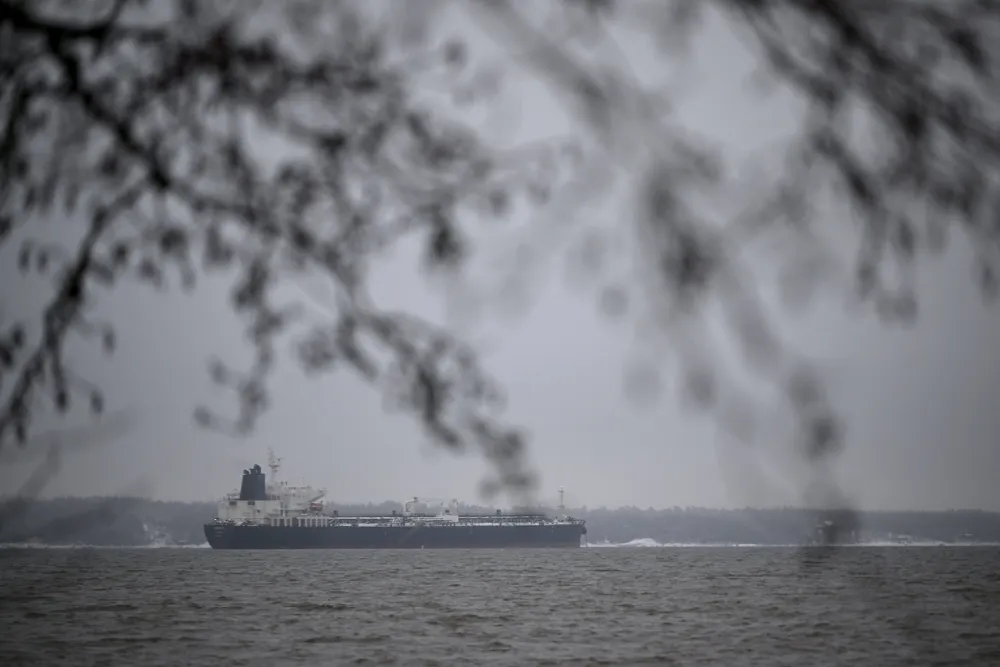
作者/Author(s): Peter Katinas
網站來源/Source: Foreign Policy
日期/Date: 09/24/2025
關鍵字/Keywords: 能源、制裁、影子艦隊
摘要:
川普近日宣布美國可能會對俄羅斯實施全面制裁,但前提是北約國家必須停止購買俄羅斯石油。這項措施雖充滿壯志,但短期內很難落實,主因部分北約國家仍持續進口俄羅斯石油,且歐盟淘汰俄羅斯化石燃料的計畫至少要到 2027 年底才可完成。與其等待北約國家全面停只進口俄羅斯石油,不如將目標轉向俄羅斯的「影子艦隊」,才是更直接的打擊目標,足以重創俄羅斯經濟。
- 俄羅斯建立了「影子艦隊」,以規避 G7+ 所設定的石油價格上限,並維持其化石燃料出口收入。自G7+實施價格上限以來,這支艦隊已成為支撐俄羅斯石油收入與經濟韌性的主要來源。
- 「影子艦隊」已構成西方長期實施制裁體系的重大漏洞,也挑戰了西方制裁的可信度。西方雖有意識到影子艦隊的風險並試圖懲處相關管理公司,但成效不彰,因此轉為鎖定具體的船舶編號,能更有效破壞俄羅斯石油貿易。
- 然而,美國、歐盟與英國各自的受制裁船隻名單有所不同,反而讓俄羅斯有機可趁,顯示出西方對懲罰俄羅斯的態度分歧與決心不足。
- 川普政府如今很明顯未與歐盟、英國、澳洲、加拿大及紐西蘭等國協調出一致的制裁船隻清單。此外,川普政府甚至放寬部分的拜登時期制裁措施,且不願進一步降低原油價格上限,不僅阻礙了制裁執行,也讓人懷美國懲罰莫斯科的決心。
- 原則上,美歐等國協調船舶制裁名單是一項低成本、高效益的作法,幾乎不需額外政治資本,卻能立即見效。實際上,美國、歐盟及其夥伴應同步更新受制裁船隻黑名單,並即時共享船舶動態資訊。
- 制裁「影子艦隊」是切實可行的策略,既能剝奪俄羅斯的重要收入來源,又能展現跨大西洋的團結。然而,各方也認同這些國家必須更嚴格執行價格上限措施,並儘速封堵其他漏洞。
Summary:
Trump recently announced sweeping sanctions on Russia, but only if NATO countries stop buying Russian oil. Although the measures are ambitious, they may not materialize because some NATO members continue to purchase Russian oil, and the EU's phase-out of Russian fossil fuels remains a work in progress, with an expected completion date of the end of 2027. Instead of waiting for NATO members to halt Russian fossil fuel purchases, the Russian shadow fleet is a more immediate target that could kneecap the Russian economy.
- Russia had assembled a shadow fleet to circumvent the G-7+ oil price cap and continue generating income from fossil fuel exports. Since the price cap was implemented, the shadow fleet has significantly contributed to Russian oil revenue and economic resilience.
- The shadow fleet poses a persistent loophole and a challenge to the West's credibility in enforcing sanctions. The West recognized the risks posed by the shadow fleet and attempted to punish companies managing it, but its efforts were ineffective. Consequently, it changed course to target vessel designation, which was more potent in disrupting the Russian oil trade.
- Nevertheless, the lack of harmonization between the US, the EU, and the UK in designating sanctioned vessels continues to provide Russia with a loophole that it can exploit, signalling disunity and a lack of resolve in punishing Russia.
- The US, under the Trump administration, is noticeably absent from aligning its vessel list with those of the EU, UK, Australia, Canada, and New Zealand. Furthermore, the administration has relaxed some Biden-era sanctions measures and is reluctant to lower the oil cap further. These actions impeded sanctions enforcement and cast doubt on the US commitment to punish Moscow.
- In principle, coordinating vessel designation among the US, the EU, and other willing partners is a low-cost and high-impact approach, requiring little political capital but with immediate results. In practice, the US, the EU, and other partners should update any vessel addition to the blacklist simultaneously and share real-time information on the movement of these vessels.
- Shadow fleet sanctions are a practical and realistic step that could deprive Russia of its revenue and show an apparent trans-Atlantic unity. However, all parties agree that the measures must enforce the price cap more rigorously and close other loopholes quickly.
